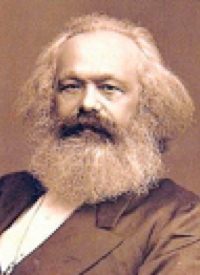
The Bolshevik junta in late 1918, followed four years later by the formation of the Union of Soviet Socialist Republics (USSR), presented itself to the world as anti-colonialist and anti-imperialist. Czarist Russia had been called the “prison house of nations,” because within the borders of the empire were so many non-Russian peoples — Ukrainians, Finns, Estonians, Poles, Uzbeks, and many others. Some of these people were Slavic, but many spoke one of the Turkic languages. The Poles were Catholic, the Russians were Eastern Orthodox, and many of those in southern Siberia practiced Islam.
Despite its claims of opposing “imperialism,” one of the first actions taken by the Bolshevik government was to bring back under the rule of Moscow those peoples who had been held by force in the Russian empire before 1917. Poles, Finns, Estonians, Latvians, and Lithuanians were able to resist this reincorporation by a combination of military resistance and diplomatic pressure. But the Ukrainians, White Russians, Georgians, Armenians, and all the Muslim peoples were lashed back into the status of subject peoples of the Great Russian communists.
When Stalin began his campaigns of exile and extermination, he focused particularly upon these non-Russian peoples. The Holomodor (man-made famine in the Ukrainian USSR) overwhelmingly fell upon the Ukrainian people; the long death-train exiles of Tartars or Volga Germans likewise were forms of ethnic cleansing and genocide. The establishment of a Jewish region in eastern Siberia near the Pacific coast was intended to insure that if Japan and Russia were engaged in full-scale war, the Jewish settlers would be sacrificed first.
After the “Great Patriotic War,” the configuration of political power within the non-Russian Soviet Socialist Republics was familiar: The First Secretary of the national communist party would be a member of the ethnic population of the nation (e.g. the First Secretary of the Tadzik Soviet Socialist Republic would be a Tadzik). However, the Second Secretary of that republic’s communist party — who wielded the actual power — would be a Great Russian.
What was true in the Soviet Union has been true in the “People’s Republic” as well. Chiang Kai-Shek had accepted the practicable autonomy within the Republic of China. The current war against the Tibetan people was begun by Mao in 1949, the very year that he seized power over China. Anti-communists were vocal and explicit about the brutality inflicted by Mao against the Tibetan people, but communist sympathizers simply ignored the torrent of horror stories. The Chinese communists exerted savage imperial control over more than just Tibet. Much of western China is inhabited by peoples who are not Han (not considered “Chinese”). The Mongolians, for example, are racially and culturally distinct from the Han.
In northwestern China, the native Muslim Uighur population of nine million has felt the heavy hand of communist Chinese control. In the city of Kashgar, weekend violence between Han Chinese and Uighur left dead, and the government has threatened to “firmly punish violent terrorists” as well as “crack down on religious extremists.”
The Uighurs wish for their own country, unoccupied by Han Chinese. One young Uighur noted the very different economic status of Uighur and Han: “Look at the Han and the Uighurs — who is rich and who is poor? Some Uighurs go to university, they graduate, they come back and can’t find jobs. These all go to the Han. And even when they [Uighurs] do find jobs, their salaries are low.”
Those fighting the communist Han Chinese, however, have been listed as “terrorists” by the United Nations. It is certain that other Muslims, probably from Pakistan and Afghanistan, have been providing weapons and training to the Uighurs. It is also undeniably true that the Uighurs have engaged in violence against Han Chinese, whom they view as occupiers and oppressors.
Analysts note that the whole situation underlines the fundamental problems of creating “international coalitions” to fight terrorism. The Uighurs are Muslims and receive help from Muslims; however, are these opponents of imperial communism really “terrorists”? What of the Kurdish people, without a nation yet spread across Turkey, Iran, Iraq, and Syria? Kurds engage in violence against the Turkish government and they are also the victims of violence. There are ethnic hostilities among the former Soviet Socialist Republics in Muslim central Asia. In June of this year, Uzbek police arrested Kyrgyz demonstrators who were protesting deadly clashes between these two nations — both part of the Soviet empire — which resulted in hundreds of deaths and thousands of injuries last year.
Critics say that communism has not reduced inherent rivalries and hatred among different races, nations, and peoples. And Tibetans and Ukrainians can attest that it has not stopped genocide.
Photo: Karl Marx



